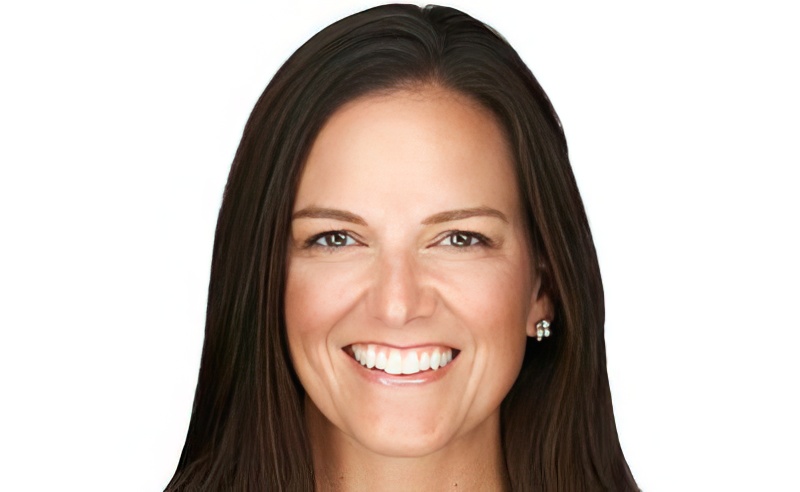Alumni, faculty describe best, worst career advice they have received
We asked faculty and alumni: What's the best and worst career advice you've received?

Alumni, faculty describe best, worst career advice they have received
If there’s one thing that students preparing to embark on a career get a lot of, it’s advice. So, ahead of the Career and Internship Fair next week, we talked with some Farmer School faculty and alumni and asked what was the best – and the worst – career advice they’d ever received.
Elly Bradford, senior manager at Honda Development & Manufacturing of America
- Best: “Don't say no to a project. If someone offers you an opportunity to work on something and you think, ‘Oh, I don't really want to do that,” do it anyway. It opens so many doors that it would never have opened up for you and broadens your perspective and helps you become a stronger leader by stepping into that uncomfortable zone.”
- Worst: “Stay where you are. Someone might say to you, ‘Oh, you don't want to move out of that company. That's a stable company. That's a good place for you.’ I think moving around is healthy. It allows you to have more experience and it allows you to experience new things that you wouldn't experience in just one role.”
David Schwab, executive vice president at Octagon Sports and Entertainment Network
- Best: “Learn how to help people. It’s easy to do stuff (and talk) about yourself. It’s much harder to be selfless and help others with zero expectation of return.”
- Worst: “Ask for a job in sports because you are a fan of sports. Of course you are – so are millions of others. But how are you going to help our business be better? Take a skill (management, marketing, social content, editing, coding, economics) and use that skill to be a welcomed individual at your new company.”
Jenny Darroch, Farmer School of Business dean
- Best: “Never give up and to be persistent. Women are less likely than men to be promoted based on their perceived potential to grow and develop in the role. Be an advocate for yourself.”
- Worst: “Take the salary that you're offered. Women are often considered to be poor negotiators and often accept the first offer or a low offer. Learn to negotiate salary.”
Justin McGlothin, assistant teaching professor, First-Year Integrated Core
- Best: “Solve the problems that no one else wants to solve. Want to make a difference? Look around. Ask questions. Listen to the wish lists. If the people you work with could solve anything, what would it be? Then go solve it.”
- Worst: “It's better to ask for forgiveness than seek permission. Trust is so important. Though not every employee-supervisor relationship is always fruitful, it is always harder to rebuild trust once it is lost.”
Gil Kessler, President at GL Kessler Consulting and Sales
- Best: “Always be well prepared, know your client/customer as well or better than they know themselves, and ask questions to find out the customers’ need, then keep your mouth shut to allow them to respond to your questions.”
- Worst: “When I got my first management position I was given a book titled ‘Management by Intimidation’ by my sales manager, who did manage that way.”
Holly Mohre, Barefoot Wine sales manager at E. & J. Gallo Winery
- Best: “Always show up the most prepared.”
- Worst: “Don’t let them see your emotions at work.”
Andrew Reffett, associate dean for educational excellence
- Best: “Be open to new challenges/opportunities even if they are outside of your comfort area and/or area of expertise. Doing so has led my career and personal development in rewarding ways that I would have never guessed.”
- Worst: “Work hard, play hard. Although perhaps not as catchy, it should be changed to ‘Work hard, play to a reasonable degree.’”
Marcia Smith, associate director of academic advising
- Best: “Be sure to learn and/or try at least one new thing every day.”
- Worst: “Only connect with people who can help to advance your career.”
Jan Taylor, senior lecturer of marketing
- Best: “Don't be limited by your major. Listen when somebody who has a different perspective tells you something about yourself. I was an art history major. When I was teaching high school and not enjoying it, a friend said I should get an MBA because I had “’good business sense.’ I did, and it was a good decision.”
- Worst: “Follow the money. I took a hit financially when I left a corporate job to be an instructor years ago, but I loved being an instructor more than I enjoyed the job I left.”
Brad White, senior vice president, operations at Textron Aviation
- Best: “Don’t try to plan out every move of your career early on. The cliché interview question of “Where do you see yourself in five years?” is really kind of silly if you think about it, because none of us can tell the future, and whatever you think is going to happen in whatever sequential order will not. So rather than focus on all those positions and roles and planning that out, really focus more on the criteria of your job, make sure you enjoy what you're doing, you’re making a difference and you’re learning. And if those three things are in place, the rest will take care of itself.”
- Worst: “Don’t take risks and stay in your path. Someone once actually told me, ‘You really just need to find somebody who is getting close to retirement and make them your boss, so that you're the next person in line for that role.’ Don't really focus on positioning yourself based on who's closer to retirement or whatever promotion opportunities are going to come forward, because so many things happen in life and in companies.”
